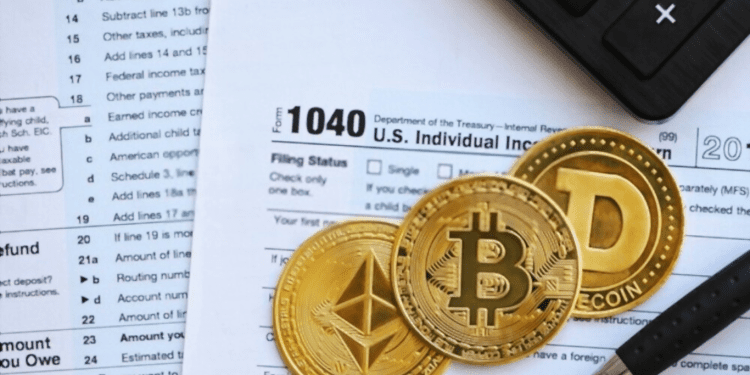- The IRS has ruled that US cryptocurrency investors must include staking rewards in their gross income as soon as they gain control of those assets.
- Staking rewards in crypto are subject to income tax in the US and must be included in the taxpayer’s income in the tax year they are obtained.
- Despite ongoing requests for regulatory clarity, the SEC has not provided guidance on staking, leading to uncertainty and some companies’ suspension of staking services.
The US Internal Revenue Service (IRS) has declared that staking rewards must be included in gross income for US cryptocurrency investors. The IRS has mandated that taxpayers include the fair market value of staking rewards as soon as they gain control of those assets.
Staking Profits Are Now Taxable
According to the IRS’s directive, staking rewards in cryptocurrency are subject to income tax in the United States the moment they are in the taxpayer’s possession. It states that when an owner receives units of digital assets as validation incentives, their fair market value must be included in the taxpayer’s income for the tax year in which the staking rewards were obtained.
According to the IRS,
“The fair market value is determined as of the date and time the taxpayer gains dominion and control over the validation rewards.”
According to the IRS, general tax principles apply to both real estate and cryptocurrency transactions. As with rent, royalties, and compensation for goods and services, any reward obtained through staking must be included in an individual’s gross income.
Furthermore, the IRS states that taxpayers who are compensated for goods and services with cryptocurrencies, including cryptocurrency miners, must include the market value of the assets in their taxable income.
As stated by the agency, “If a cash-method taxpayer stakes cryptocurrency native to a proof-of-stake blockchain and receives additional units of cryptocurrency as rewards when validation occurs, the fair market value of the validation rewards received is included in the taxpayer’s gross income in the taxable year in which the taxpayer gains dominion and control over the validation rewards.”
The Future of Staking in the United States Is Uncertain
Staking services have been controversial in the United States for the past six months. The uncertainty over staking services started when the SEC sued crypto exchange Kraken over its staking business. Kraken agreed to suspend the service and pay a $30 million fine.
Coinbase has also pressed the SEC for regulatory clarity in the industry, particularly regarding staking. The exchange requested that the Securities and Exchange Commission exclude staking from its definition of securities. Nonetheless, the SEC maintains staking services through intermediaries, such as Kraken, which meets the Howey Test and qualifies as securities.
Despite repeated requests to the SEC for clarification on staking, the agency has yet to issue any guidance or regulation. In light of the regulatory uncertainty in the United States, Coinbase announced the suspension of its staking services in California, New Jersey, South Carolina, and Wisconsin in response to preliminary orders issued by local state regulators.














